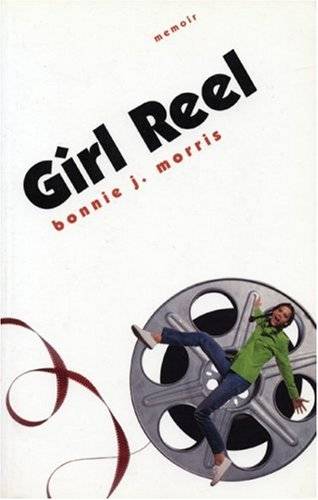Girl Reel
Bonnie J. Morris
All have portrayed lesbian characters on the silver screen. Although cinema and television in the last three decades of the twentieth century have been a wasteland for women in general and lesbians in particular looking for strong images of themselves, Bonnie Morris gives readers a front row seat on a life growing up and coming out at the movies. Morris writes, This is a collection of movie stories-by which I mean recollections of events, images, turning points generated by specific moviegoing experiences, and specific movies and the book is built around the catalyst of going to a movie as a chunk of formative girl identity. Girl Reel is a raucous, rollicking, sometimes acerbic look at the powerful influence the entertainment industry has on our community, family, and social lives.
A must-have for all film buffs, Girl Reel is a book about our relationship to popular culture-how media images both preview and rerun our own lives. By surveying images of women and lesbians in television and film over the seventies, eighties, and nineties, and chronicling the move of lesbian and gay issues from the margins to the mainstream, Morris offers her own images of strong women, for a new generation of readers / viewers.
Bonnie J. Morris is a professor of women’s studies at George Washington University and Georgetown University. Born to Hollywood parents-her father was an extra in The Day the Earth Stood Still; her mother was an assistant to the movie star Greer Garson- Morris is the author of Eden Built by Eves (Alyson 1999) and two books on Jewish women’s history, and she is a contributor to more than fifty books and journals.
—
From Publishers Weekly
The summer that Morris (Eden Built by Eves) was allowed to ride her bike to the cinema by herself was the true beginning of her love affair with film. In this chatty, slight memoir, she tries to recapture an 11-year-old’s confusing medley of desires: the longing to see precociously smart young girls like herself represented onscreen, to discover visual blueprints for adolescence amid the tantalizing glimpses of adulthood and, ultimately, to find images of women loving women. She recalls the movies she watched over and over again, like Paper Moon (featuring Tatum O’Neal as the girl who talked back); American Graffiti, with its infectuous soundtrack; and later, the not-so-straight Julia, in which Jane Fonda meets Vanessa Redgrave. There are the familiar icons: Jodie Foster as an outspoken tomboy; Barbra Streisand in Yentl, fighting the intellectual sexism that allows a Jewish woman to be lovable or learned, but not both. Unfortunately, Morris omits the details that might have raised the book out of its self-referential, celebratory mode to more sustained insight. (What did her hippie parents think when she took them to the midnight showing of The Rocky Horror Picture Show? How did they react when she came out?) It’s hard to believe that even an earnest 16-year-old would really say, ‘Thank you for seeing the real me… more and more I realize the only way I can grow is up.’ Although the writing swings awkwardly into a preachy and self-congratulatory tone in the latter half of the book, the story of Morris’s early girlhood and the glimmerings of her intellectual coming-of-age are most plainly evocative in this cinematic syllabus for one girl’s personal and social enlightenment. (June)
Copyright 2000 Reed Business Information, Inc.
From Library Journal
For many, film plays an important role in the journey to adulthood and beyond, introducing fresh ideas, raising significant questions, and marking life’s events in the process. Morris (women’s studies, George Washington and Georgetown Univs.; Eden Built by Eves, LJ 4/1/99) connects episodes of her life to movies, compelling the reader to examine a variety of social, ethnic, intellectual, artistic, minority, and gender issues. Despite the subtitle’s implication, the lesbian experience is not the author’s sole focus. Much of her childhood allowance went toward seeing such films as Song of the South and Paper Moon, sparking observations on society, stereotypes, and role models. Disaster movies, teen favorites, and independent releases raised further questions about the nature of existence on many levels. Films ranging from Batman and The Rocky Horror Picture Show to The Incredibly True Adventure of Two Girls in Love figure in her story, as Morris affirmed her lesbian identity, Jewish heritage, and intellectual talents while building relationships. A gifted writer, she captures life’s details, triumphs, amusements, and absurdities, brilliantly using the silver screen as the backdrop. This gem of a memoir is for general circulation, particularly libraries with large entertainment and women’s studies collections.
Carol J. Binkowski, Bloomfield,
Copyright 2000 Reed Business Information, Inc.
Check for it on:
Details
| ISBN | 1566890942 |
| Genre | Autobiography/Biography |
| Copyright Date | 2000 |
| Publication Date | 01-Jun-00 |
| Publisher | Coffee House Press |
| Format | Trade Paperback |
| No. of Pages | 192 |
| Language | English |
| Rating | NotRated |
| BookID | 4768 |
